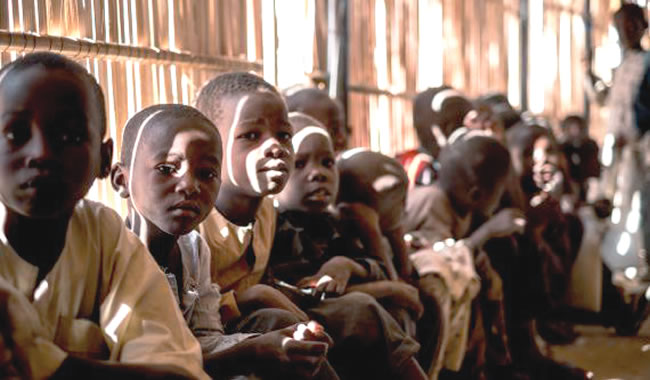A recent study conducted at the Juvenile Correctional Institution in the Ijokodo neighborhood of Ibadan, Oyo State, by researchers revealed that negative childhood experiences, such as child labour, physical abuse, s3xual abuse, neglect, parental separation, and abandonment, increase the risk of PTSD in vulnerable children and orphans.
The report indicated that the adolescents living in the home faced psychological issues such as insomnia, persistent sadness, and nightmares. Additionally, some of the caregivers described their work at home as traumatizing, expressing feelings of helplessness in their efforts to support the children.
The study titled, “Improving the Management of PTSD in Orphans and Vulnerable Children” presented its findings at a dissemination meeting involving partners from the University of Southampton, UK, and Makerere University, Uganda.
The principal investigator of the Worldwide Universities Network (WUN) Project in Nigeria, Dr. Yetunde Adeniyi, presented the findings of the study at the University College Hospital in Ibadan.
She reported that more than 90 percent of the children in the home had experienced some form of trauma, which has significantly impacted them.
She noted that while the children and caregivers recognise the government’s efforts, the homes still need more attention.
“There is still much to be done regarding the provision of essential materials, food, clothing, and shelter. Additionally, there is a need for a school and a clinic at the home. When the children fall ill, they have to be taken out to search for nearby hospitals. The home is large enough to accommodate both a clinic and a school.
“Some children have physical and mental disabilities; others have conditions that their carers do not understand. They require visiting specialists once or twice a week to monitor their progress.
“Some residents require medications or medical care, including surgery at times. Although the home may not perform surgeries, the medical team can identify these cases in a timely manner.
For the study, one-on-one interviews were conducted with 41 participants at the juvenile correctional institution in Ijokodo. These participants included 21 adolescents aged between 12 and 24 years, as well as 20 caregivers, policymakers, and professionals who work with children at the institution.
They stated that the adolescents expressed a lack of trust and confidentiality as some of the reasons for not always confiding in the workers at home.
The unmet needs identified for the children in the home included a lack of material provisions, psychological support, creative activities, consistent schooling, and vocational skills training. Additionally, there was a lack of support for special needs, insufficient training and professional support for staff, poor access to schooling, and inadequate material provisions such as food, clothing, and medical supplies.
According to one source, “Some of them are unhappy and confused about the future; they really do not know what to do after they leave their current situation because there are no clear provisions for them. As a result, they are sad and sometimes have nightmares, which could be signs of PTSD.”
The carers also reported experiencing psychological issues due to being overwhelmed by their work. Many of them are not adequately trained for their roles. They are willing to work hard, but they require proper training to make the job easier.
Dr Adeniyi emphasised that, despite their concerns primarily revolving around becoming independent, pursuing careers, and achieving financial stability, there is an urgent need for funding structures to enhance staff training and improve the care provided to the children. This should involve collaboration between the public and private sectors.
The Dean of the Faculty of Clinical Sciences at the College of Medicine at the University of Ibadan and chairman of the occasion, Professor Taiwo Lawal, stated that dissemination meetings are crucial for sharing information about the study and keeping stakeholders informed about its progress and future implications.
Oyo State Commissioner for Health, Dr Oluwaserimi Ajetunmobi, remarked that the study highlights the post-traumatic stress experienced by orphans and vulnerable children, paving the way for necessary intervention and support.
Represented by Dr Idris Fasasi, the director for tertiary health care services at the Ministry, he noted that the Ministry of Health has made significant strides in ensuring mental health services are integrated and accessible. This includes fully incorporating mental health activities into the state’s annual operational plan and 2025 budget.
She stated, “By providing access to appropriate mental health care and supporting their healing from trauma, we are improving their futures while contributing to a healthier, more resilient Oyo State.”
In response to the study, Professor Abdulwaheed Soliu, Oyo State Commissioner for Education, Science, and Technology, emphasized that children with special needs have equitable social needs since nothing is wrong with their cognitive abilities, and they are just as capable as anyone else. He assured his ministry’s commitment to work with researchers to address the challenges faced by vulnerable children and orphans.
Oyo State Commissioner for Women Affairs and Social Inclusion, Honourable (Mrs) Toyin Balogun, represented by Mr. Gbemileke Ojerinde, Director of Child Welfare, pledged the Ministry’s ongoing support for collaborations aimed at improving the home. Dr Adeniyi expressed gratitude to the Ministry of Women Affairs and Social Inclusion, the Special Guest of Honour Engineer Jubril Dotun Sanusi (CEO of Ilaji Holdings and Jagun Olubadan of Ibadanland), and all guests present for their support in making the project a success.
READ ALSO: 2027 general elections contest between APC, Nigerians — Gov Makinde
